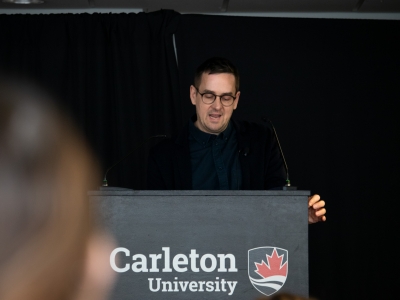By Tyrone Burke
Canada’s political institutions don’t reflect the diversity of its population — and that means important perspectives are being excluded from public policy discussions and decision-making processes.
“When you look at institutions, the people in those institutions, and the procedures, practices and policies that they are guided by, they only reflect a small segment of the population,” says Dr. Erin Tolley, an Associate Professor of Political Science who has been awarded the Canada Research Chair in Gender, Race, and Inclusive Politics.

“Elected bodies, universities, and work places have all been largely designed by and for the most powerful members of society. And at the time of their creation, the most powerful members of society were all able-bodied, propertied white men. Although some changes have been made, these have been made at the margins. There have not been large changes to remake these institutions; they have mostly been minor modifications. People want to look at some of the success stories, and believe there has been significant progress, but the archetypal elected official remains a white, able-bodied, middle-aged heterosexual white man.”
But not all of the factors that contribute to the political underrepresentation of women, racialized people and Indigenous people have been well-studied. Political scientists in Canada have tended to approach the problem of underrepresentation through the lens of gender, ethnicity and language, and they have not typically understood it through the prism of race.
Read full story in Research news…
Tuesday, June 15, 2021 in Department of Political Science, News, Research
Share: Twitter, Facebook



